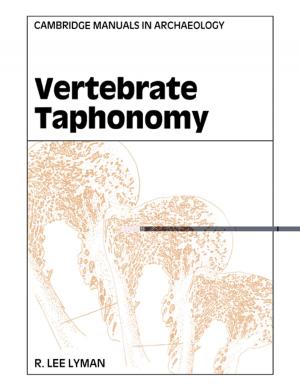Ceasefire or New Battle? The Politics of Culture Wars in Obama's Time
Nonfiction, Social & Cultural Studies, Political Science, Social Science| Author: | ISBN: | 9781442638805 | |
| Publisher: | University of Toronto Press, Journals Division | Publication: | November 1, 2012 |
| Imprint: | Language: | English |
| Author: | |
| ISBN: | 9781442638805 |
| Publisher: | University of Toronto Press, Journals Division |
| Publication: | November 1, 2012 |
| Imprint: | |
| Language: | English |
The year 2012 holds great significance in American politics—apart from the reelection of the first black president in US history, it also marked the twentieth anniversary of ultraconservative Pat Buchanan’s “culture war” speech at the Republican Party’s national convention in 1992. With Obama having just begun his second term in office, this very timely volume aims to generate a deeper understanding of US culture wars and their place in the political context of today’s America. Are the culture wars as timely today as they were 20 years ago? Do they continue to define national identity—what American means as a society, what Americans were in the past, what they are today, and what they will become? This volume investigates the culture wars through multiple, thought-provoking lenses that will both enlighten and challenge your current perceptions on the red versus. blue identities of American politics by addressing four key questions: Is a culture war really underway in America?; Is this “war” only between activists and politicians?; Who are the main actors and how do they try to reach their goals?; Have we been witnessing a ceasefire in (or transformation of) America’s culture wars since Obama’s election in 2008? Graham Dodd opens the volume by challenging conventional views about the Religious Right and American culture wars, arguing that the topic has often been distorted in important respects. Dodd contends that cultural criticisms associated with religious conservatives are more often cynically promulgated by mainstream Republican elites for electoral gain. Even when these efforts succeed, conservative-elected officials seldom enact policies that either cultural or religious conservatives want. Much that has appeared in recent years to be a cultural crusade may, in fact, be more of a charade. How did the election of a black president change the atmosphere of the modern culture wars? Rhys Williams argues that while the culture wars of the 1990s and early 2000s were typified by debates over the legality and morality of abortion and same-sex marriage, immigration went from playing an intermittent role to taking full focus with Obama’s election in 2008. While “pro-family” activism has yet to take a complete backseat, there is a new public focus on a vision of America that depends on conflation of race, religion, and national identity, transforming immigration into a highly charged, polarized issue that has facilitated the construction of Obama as Muslim, as born in Kenya, and as not a citizen. Drawing on popular media discourse, Williams takes an ultra-contemporary approach to explore the construction of American national identity in terms of its ethno-cultural articulations. Televised entertainment news, or “infotainment TV,” has become the medium and locus where the culture wars were waged during Obama’s first term in office. David Grondin investigates these media sources and makes an inaugural case for Jon Stewart as a protagonist in these culture wars, despite Stewart’s public desire to set himself apart from them. While Grondin recognizes the crucial role played by The Daily Show in critiquing news-media coverage of American politics, he nevertheless contends that Stewart can be seen as a(n unwilling) culture warrior. Grondin looks at how satirical infotainment TV has essentially become political practice, as it both critiques and re-enacts the culture wars and ultimately affects American journalistic media. Regardless of geographic location or political interests, this volume is a terrific and insightful read for anyone interested in the changing faces of American identity and the modern-day media. The articles within, complete with an introduction by editor Frédérick Gagnon, will challenge your current perceptions of the main issues at stake in the American political forum, and bring to light how and why Obama has changed the face of the twenty-year-old culture wars.
The year 2012 holds great significance in American politics—apart from the reelection of the first black president in US history, it also marked the twentieth anniversary of ultraconservative Pat Buchanan’s “culture war” speech at the Republican Party’s national convention in 1992. With Obama having just begun his second term in office, this very timely volume aims to generate a deeper understanding of US culture wars and their place in the political context of today’s America. Are the culture wars as timely today as they were 20 years ago? Do they continue to define national identity—what American means as a society, what Americans were in the past, what they are today, and what they will become? This volume investigates the culture wars through multiple, thought-provoking lenses that will both enlighten and challenge your current perceptions on the red versus. blue identities of American politics by addressing four key questions: Is a culture war really underway in America?; Is this “war” only between activists and politicians?; Who are the main actors and how do they try to reach their goals?; Have we been witnessing a ceasefire in (or transformation of) America’s culture wars since Obama’s election in 2008? Graham Dodd opens the volume by challenging conventional views about the Religious Right and American culture wars, arguing that the topic has often been distorted in important respects. Dodd contends that cultural criticisms associated with religious conservatives are more often cynically promulgated by mainstream Republican elites for electoral gain. Even when these efforts succeed, conservative-elected officials seldom enact policies that either cultural or religious conservatives want. Much that has appeared in recent years to be a cultural crusade may, in fact, be more of a charade. How did the election of a black president change the atmosphere of the modern culture wars? Rhys Williams argues that while the culture wars of the 1990s and early 2000s were typified by debates over the legality and morality of abortion and same-sex marriage, immigration went from playing an intermittent role to taking full focus with Obama’s election in 2008. While “pro-family” activism has yet to take a complete backseat, there is a new public focus on a vision of America that depends on conflation of race, religion, and national identity, transforming immigration into a highly charged, polarized issue that has facilitated the construction of Obama as Muslim, as born in Kenya, and as not a citizen. Drawing on popular media discourse, Williams takes an ultra-contemporary approach to explore the construction of American national identity in terms of its ethno-cultural articulations. Televised entertainment news, or “infotainment TV,” has become the medium and locus where the culture wars were waged during Obama’s first term in office. David Grondin investigates these media sources and makes an inaugural case for Jon Stewart as a protagonist in these culture wars, despite Stewart’s public desire to set himself apart from them. While Grondin recognizes the crucial role played by The Daily Show in critiquing news-media coverage of American politics, he nevertheless contends that Stewart can be seen as a(n unwilling) culture warrior. Grondin looks at how satirical infotainment TV has essentially become political practice, as it both critiques and re-enacts the culture wars and ultimately affects American journalistic media. Regardless of geographic location or political interests, this volume is a terrific and insightful read for anyone interested in the changing faces of American identity and the modern-day media. The articles within, complete with an introduction by editor Frédérick Gagnon, will challenge your current perceptions of the main issues at stake in the American political forum, and bring to light how and why Obama has changed the face of the twenty-year-old culture wars.















